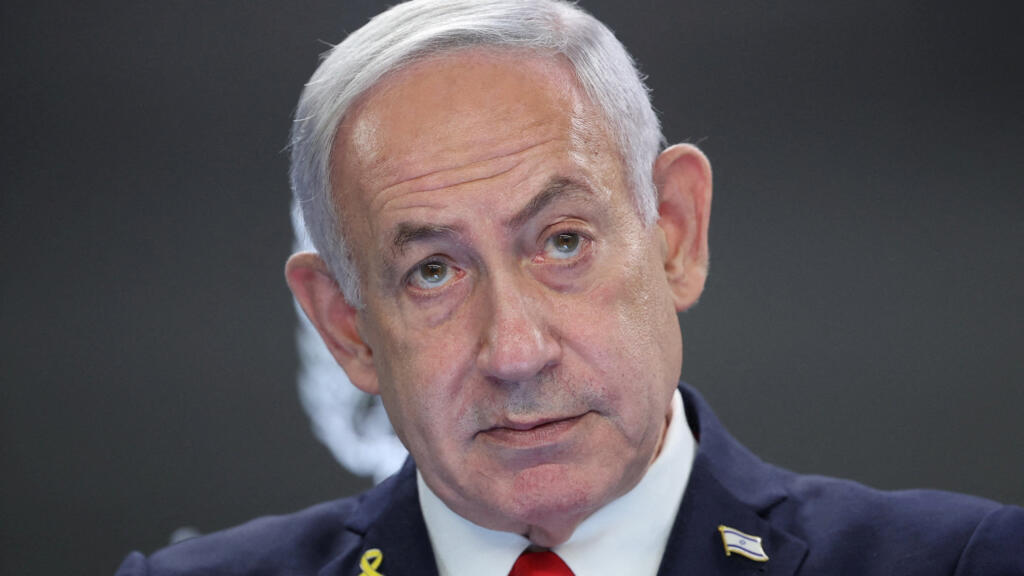Politics
Netanyahu Claims Qatar Strikes Could End Gaza Conflict, Faces Criticism

Israeli Prime Minister Benjamin Netanyahu stated on Saturday that the assassination of Hamas leadership in Qatar would eliminate a significant barrier to ending the ongoing conflict in Gaza. This assertion follows an unprecedented air strike on March 12, 2024, which targeted Hamas leaders but ultimately did not achieve its objective. The strike has drawn sharp criticism from within Israel, particularly from the Hostages and Missing Families Forum.
In Netanyahu’s view, dismantling Hamas’s leadership structure is crucial for reaching a lasting peace. He emphasized that such actions could facilitate negotiations and pave the way for stability in the region. Nevertheless, the Hostages and Missing Families Forum, representing the families of individuals missing or held hostage by Hamas, contends that the air strike undermines efforts to secure peace.
The Forum released a statement asserting that Netanyahu’s tactics are detrimental to any potential peace agreements. They argue that military actions, rather than promoting dialogue, have consistently complicated negotiations. This sentiment resonates with many who are deeply concerned about the fate of hostages and the broader implications for Israeli society.
The air strike in Qatar, a key US ally, raises complex geopolitical questions. Following the attempted strike, reactions from international observers have varied. While some support Israel’s right to defend itself against perceived threats, others caution against escalating military action that could further destabilize the region.
The situation remains fluid as discussions about the conflict continue. Netanyahu’s government faces significant pressure to address the humanitarian crisis in Gaza while also responding to security concerns. As the military actions unfold, the plight of hostages remains a critical issue that the Israeli leadership must navigate carefully.
In light of these developments, the path to peace remains uncertain. The voices of families affected by the conflict highlight the human cost of military decisions, emphasizing the need for a comprehensive approach that prioritizes dialogue and resolution over aggression. As the situation evolves, the international community watches closely, hoping for a resolution that addresses both security and humanitarian needs.
-

 World5 months ago
World5 months agoSBI Announces QIP Floor Price at ₹811.05 Per Share
-

 Lifestyle5 months ago
Lifestyle5 months agoCept Unveils ₹3.1 Crore Urban Mobility Plan for Sustainable Growth
-

 Science4 months ago
Science4 months agoNew Blood Group Discovered in South Indian Woman at Rotary Centre
-

 World5 months ago
World5 months agoTorrential Rains Cause Flash Flooding in New York and New Jersey
-

 Top Stories5 months ago
Top Stories5 months agoKonkani Cultural Organisation to Host Pearl Jubilee in Abu Dhabi
-

 Sports4 months ago
Sports4 months agoBroad Advocates for Bowling Change Ahead of Final Test Against India
-

 Science5 months ago
Science5 months agoNothing Headphone 1 Review: A Bold Contender in Audio Design
-

 Top Stories5 months ago
Top Stories5 months agoAir India Crash Investigation Highlights Boeing Fuel Switch Concerns
-

 Business5 months ago
Business5 months agoIndian Stock Market Rebounds: Sensex and Nifty Rise After Four-Day Decline
-

 Sports4 months ago
Sports4 months agoCristian Totti Retires at 19: Pressure of Fame Takes Toll
-

 Politics5 months ago
Politics5 months agoAbandoned Doberman Finds New Home After Journey to Prague
-

 Top Stories5 months ago
Top Stories5 months agoPatna Bank Manager Abhishek Varun Found Dead in Well









